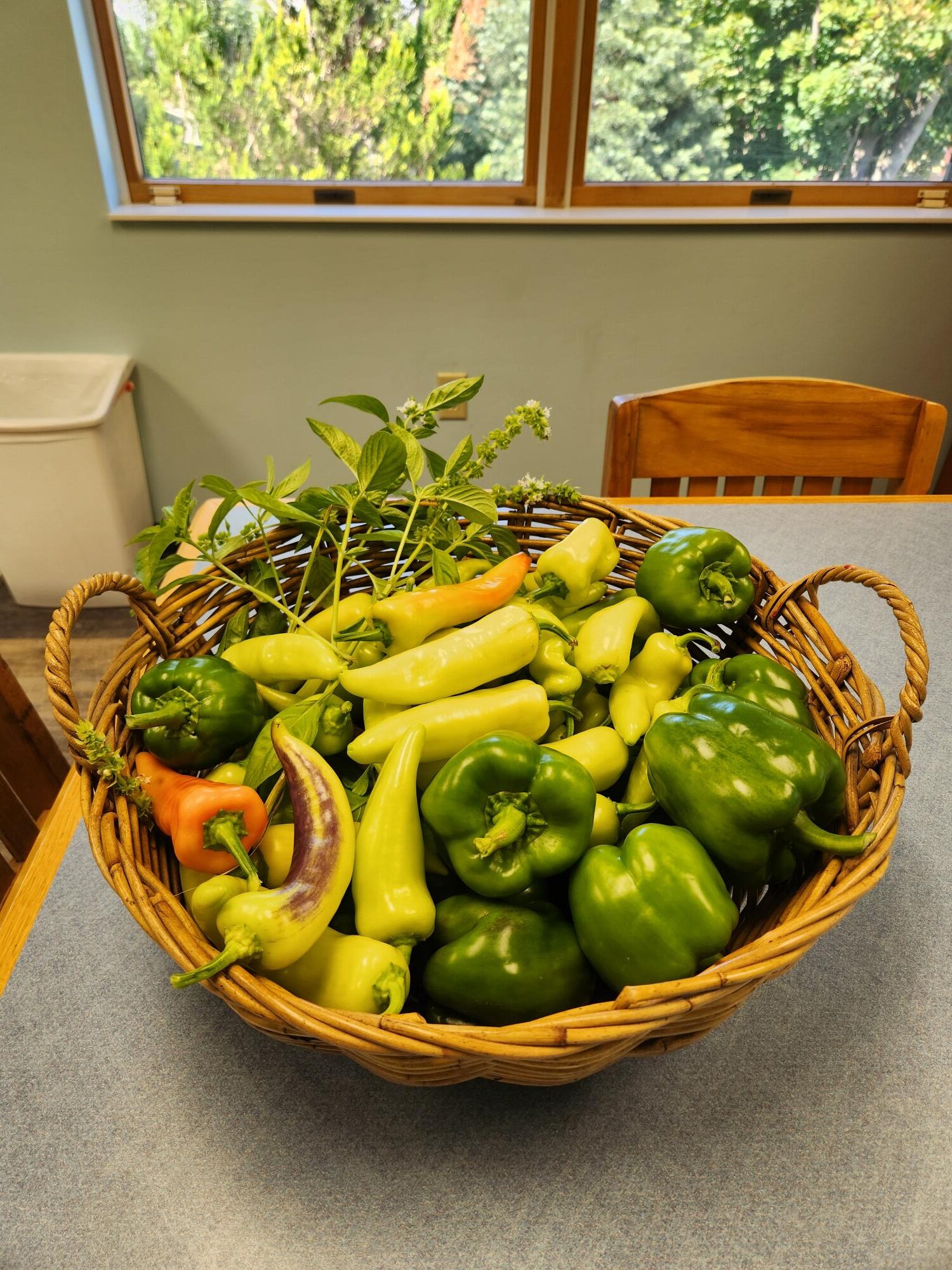A major focus area of the Center for Population Health is addressing social determinants of health, like food education and insecurity, in the region.
Since hiring Local Food Systems Coordinator Nan McNinney two years ago, the Center for Population Health has been working to address various aspects surrounding food in a myriad of ways.
College Food Pantries
One major initiative has included helping local colleges launch food pantries for their students. There is a preconceived idea that if an individual can afford to attend college, they can afford food; however, many area students are considered “nontraditional.”
A non-traditional student means they are adult-learners, part-time students, and/or parents who can’t afford an expensive meal plan on top of paying for tuition, purchasing books, and other learning materials.
By helping students obtain nutritious food, it alleviates some of the stress they are facing.
College students may qualify for Supplemental Nutrition Assistance Program (SNAP) benefits. Visit Food Access – Center for Population Health, and click on “College Student SNAP Eligibility.”
Venison to food distribution sites
Connecting individuals with fresh protein at local food distribution sites has been another way to address food insecurity.
In December of 2024 and January of 2025, Nan was able to work with Hunters Sharing the Harvest to coordinate venison donations to local food distribution sites.
Over the two months, 109 cases (totaling 6,170 pounds) of venison were given to six local food distribution sites for those in need.
SNAP at Johnstown Farmers Market
Partnering with the United Way of the Southern Alleghenies who provides match SNAP funds at the Johnstown Farmers Market is another way the community is working to get more fresh produce into people’s hands.
Individuals using SNAP at the farmers market are eligible for “Fresh Bucks,” which will match a portion of their SNAP benefits so more produce can be purchased.
Community Gardens
Creating communal spaces for people to gather, garden, and take home fresh vegetables is why Nan is working hard to uplift current community gardens as well as create new community gardens.
Last year, two new community gardens were built at The Women’s Help Center and the Community Help Center, which allows residents to get outside and work in the gardens, then eat the vegetables they grew on their own.
There are additional community garden locations currently in the works.
CPH will continue its work in making sure all people have equitable access to nutritional food and healthy food education.
March is National Nutrition Month® and a great time to focus on making healthy food choices and developing good exercise habits. It also serves as an opportunity to get involved in a community garden in your neighborhood or start your own.
If you’d like more information about community gardens, please email info@centerforpophealth.org.

